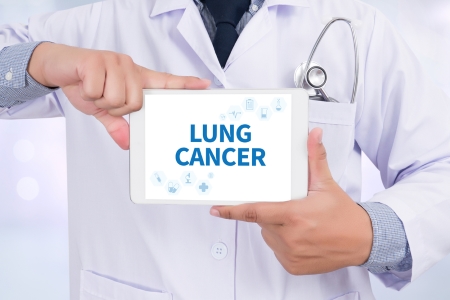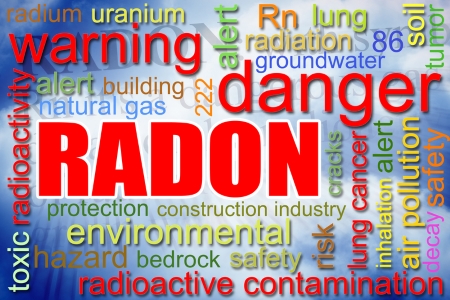World Lung Cancer Day was officially on August 1, 2022. On this day lung doctors and global lung associations recognized the seriousness of lung cancer research awareness, research, and advocacy.
Even though the August 1 date is gone, FLASS believes the World Lung Cancer Awareness Day issues should be advocated and celebrated all year long. Thus, we are publishing this official FLASS alert. You can view more on this topic in our 2021 blog.
Sparkling New World Lung Cancer Day Statistics, You Need to Know

World Lung Cancer Day Focuses on the Perils of Lung Cancer for One Day. However, FLASS Marks These Health Issues With the Highest Priority Every Day of the Year.
The American Lung Association stated, “Anyone can get lung cancer. Yet according to a recent lung health survey, 73% of adults have not spoken with their doctor about their risk for lung cancer.”
Lung cancer is our number one killer among all the types of cancers in the US. However, only 40% of people in the US register any concern about the disease with their doctor.
Awareness Campaigns and Missions
Thus, awareness campaigns like World Lung Cancer Day are the key to two important goals:
- Firstly, to educate the public about the risks of lung cancer.
- Secondly, we need to diminish the stigma that surrounds this dreaded disease.
In November, we will have an entire month dedicated to this advocacy. Right now, however, let’s just take a day or a week to focus on some important facts that might get lost in the busy fall season of November.
And remember, some people have no time to lose. Moreover, early treatment is essential, and testing is available.
Likewise, greater awareness of lung cancer is key to reducing the stigma around lung cancer. As the American Lung Society says, “It’s important to get the facts now.”
Facts About the Lung Cancer Stigma

Making Healthy Choices Can Influence Your Lung Cancer Risks. Certainly, Smoking is the Most Dangerous Risk You Can Take.
- People are still unaware that they can get lung cancer without ever smoking. Some patients must deal with a society that suspects them of being secret smokers.
- Many patients who smoked feel society’s unspoken criticism that they deserve to be sick. That is the stigma. What follows the stigma is the undeserved guilt and depression.
- Experts at Yale Medicine state, “If you have never puffed on a cigarette in your life, you may think you won’t get lung cancer…” You might very well avoid lung cancer that way.
However, the experts add, “…Some nonsmokers get it anyway. According to the American Cancer Society, as many as 20 percent of people in the United States who died from lung cancer in 2018—a total of roughly 30,000 people—never smoked.”
Again, FLASS joins the American Lung Association in urging you to get the facts and know your Lung Cancer risks.
The Multiple Causes of Lung Cancer
Did you know “Anyone can get lung cancer?” The root cause of lung cancer occurs when lung cells mutate. Many factors can cause such mutation, which enacts a: permanent change in the DNA sequence of a gene.”)
- The lung cells usually change because people breathe in dangerous substances.
- Unfortunately, you can still be at risk if your lungs were exposed years ago.
- FLASS advises you to let your doctor know if you have inhaled the following problematic toxins:
Toxic Causes of Lung Cancer
Tobacco Tops the List
- Smoking tobacco still sits at the number one seat for causing lung cancer. Sadly, 90 percent of lung cancer cases are smokers or former smokers.
- On this day of World Lung Cancer Awareness, realize that Tobacco smoke is not just one risk. Most importantly, cigarettes have several chemicals that cause lung cancer.
- Did you know Non-smokers are affected by smoking? It is true that just breathing in secondhand smoke increases your risk of contracting lung cancer.
Radon: The Invisible Cause

Check Your House for “Radon.” Likewise, It’s Another Prime Cause of Lung Cancer.
World Lung Cancer Day should also be named Radon Awareness Day. “Radon exposure is the second-leading cause of lung cancer.”
- What is this Risk? It sounds like science fiction. However, “Radon is a colorless, odorless radioactive gas that exists naturally in soil.”
- Are you aware that Radon comes up through the soil, into small cracks in your home or business building? Statistics note that 1 out of every 15 homes in the U.S. is polluted with radon.
- To celebrate World Lung Cancer Day, analyze and reduce your risk with an easy-to-find, cheap Radon test kit from your hardware store.
Hazardous Chemicals Threaten Your Lungs
World Lung Cancer Day presents you with a list of hazardous chemicals that can bring deadly lung cancer to your lungs.
“Working with materials such as asbestos, uranium, arsenic, cadmium, chromium, nickel and some petroleum products is especially dangerous.”
If you must work with these chemicals or if your work environment spews heavy dust and fumes, talk to your employer about special protection.
Awareness: Have You Heard of “Particle Pollution?”
Particle pollution is a mixture of minuscule solid and liquid particles. They are ever-present in the air we must breathe. One example is exhaust smoke.
Particle pollution refers to a mix of very tiny solid and liquid particles that are in the air we breathe. Evidence shows that particle pollution—like that coming from that exhaust smoke—increases the risk of lung cancer.
In this blogger’s life, the particle pollution from nearby forest and mountain town fires often came down like snow on her Los Angeles home. In those days, concerned mothers kept their children indoors.
Since particle pollution is an environmental concern, it might be the most difficult threat to reduce. The American Lung Association suggests that you collaborate with your community to “clean up air” for families to breathe better.
Be Aware: Genetic Factors Can Increase Your Risk
Perhaps the most unknown risk for lung cancer exists in mysterious Genetic factors. We believe certain genes might increase your risk of lung cancer.
Thus, FLASS wants you to be acutely aware of your family history. If there is a history of lung cancer in your family, it might indicate you are at a higher risk of getting it. Just remember to tell your doctor if others in your family have or previously had this disease.
Get Your Screening Test
A lung cancer screening test helps doctors diagnose lung cancer early. If we can detect it early, it is more likely we can cure it. Likewise, if we are able to treat it before it spreads, then there is a 60 percent chance you will survive for five years.
The Lung Cancer Screening Test is simply a low-dose CT scan. In other words, it “is a special kind of X-ray that takes multiple pictures as you lie on a table that slides in and out of the machine.”
Then a computer creates a detailed picture of your lungs for your doctor to study. Now we know that the test can actually reduce mortality in high-risk cases.
Who is at “High Risk?”

Your X-rays or Low Dose CT Scan Could Show Early Treatable Lung Cancer. Most Importantly, It Could Add Years to Your Life.
Be aware that if you previously smoked or still smoke, and you are over 50 years old, you are in the high-risk group. That means you would be eligible for this life-saving test.
And, at FLASS, we think that is exceptionally good news.
We must ask, “Why is it so important that more people learn about lung cancer screening?”
According to the Huffington Post, only…16 percent of lung cancer cases are diagnosed early when the disease is most curable.”
The Lung Cancer Screening Test could save 15,000 lives if even half of the eligible people would take the scan. The Huffington Post put a human touch on this statistic.
They stated, “Imagine all of the parents, siblings, and friends whose lives could be saved if everyone who is at high risk for lung cancer was screened.”
Currently, 4.2 million people could qualify for the scan. Find out if you are one of them by taking a quiz at this special online resource.
Thank you for reading the blog on the Florida Lung, Asthma and Sleep Specialists’ website. Now, we think you might understand why FLASS believes the World Lung Cancer Awareness Day issues should be advocated and celebrated all year long.

